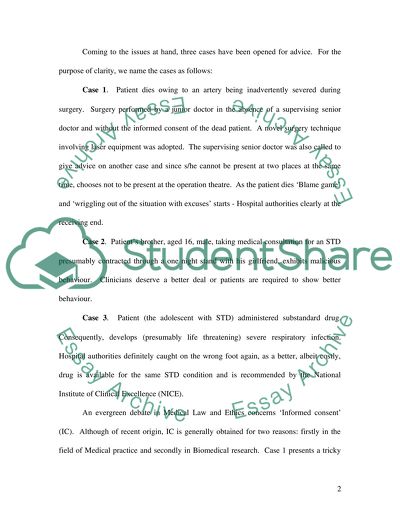Cite this document
(Medical Law and Ethics Case Study Example | Topics and Well Written Essays - 1750 words, n.d.)
Medical Law and Ethics Case Study Example | Topics and Well Written Essays - 1750 words. Retrieved from https://studentshare.org/health-sciences-medicine/1535716-medical-law-and-ethics
Medical Law and Ethics Case Study Example | Topics and Well Written Essays - 1750 words. Retrieved from https://studentshare.org/health-sciences-medicine/1535716-medical-law-and-ethics
(Medical Law and Ethics Case Study Example | Topics and Well Written Essays - 1750 Words)
Medical Law and Ethics Case Study Example | Topics and Well Written Essays - 1750 Words. https://studentshare.org/health-sciences-medicine/1535716-medical-law-and-ethics.
Medical Law and Ethics Case Study Example | Topics and Well Written Essays - 1750 Words. https://studentshare.org/health-sciences-medicine/1535716-medical-law-and-ethics.
“Medical Law and Ethics Case Study Example | Topics and Well Written Essays - 1750 Words”. https://studentshare.org/health-sciences-medicine/1535716-medical-law-and-ethics.


